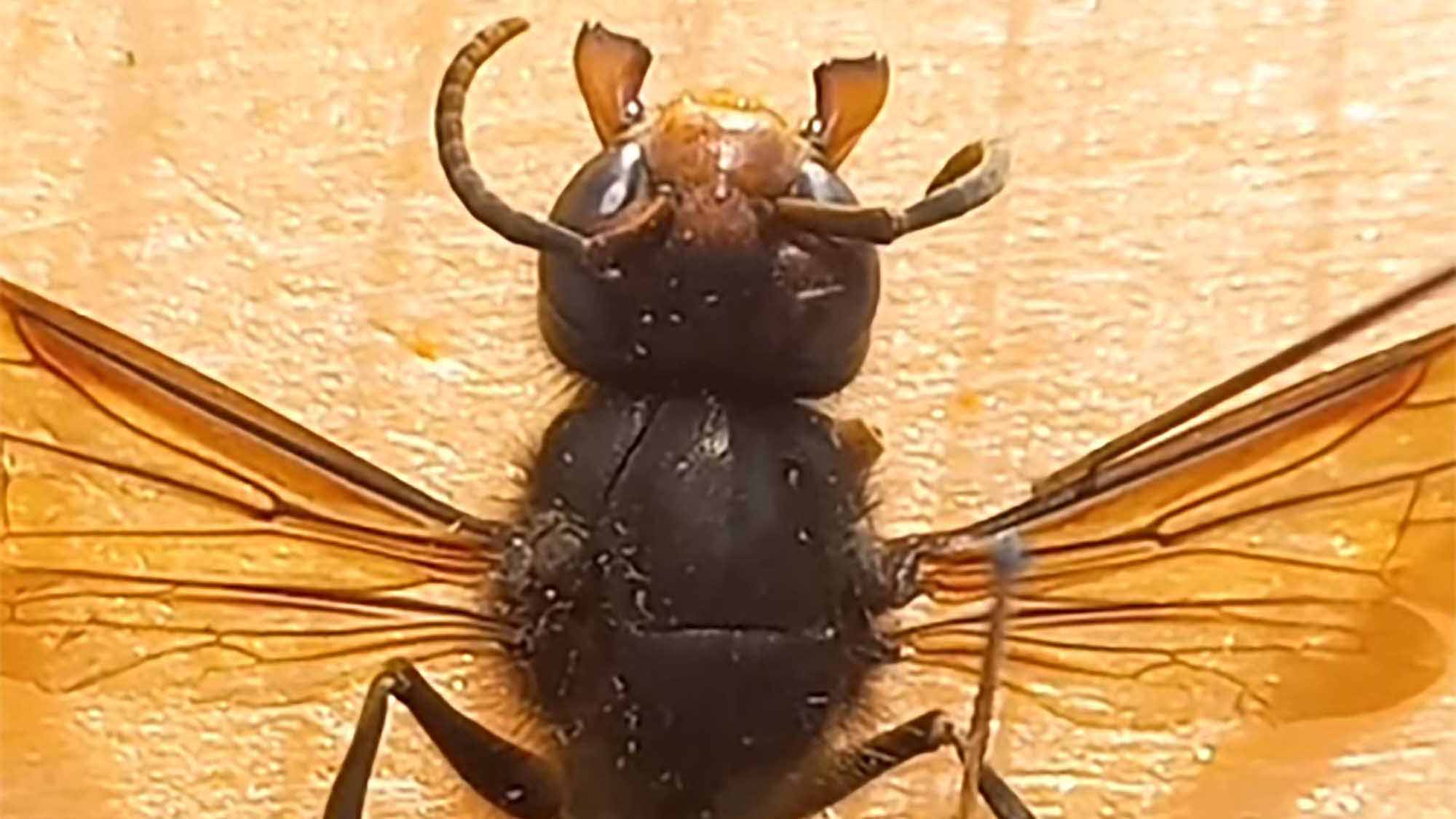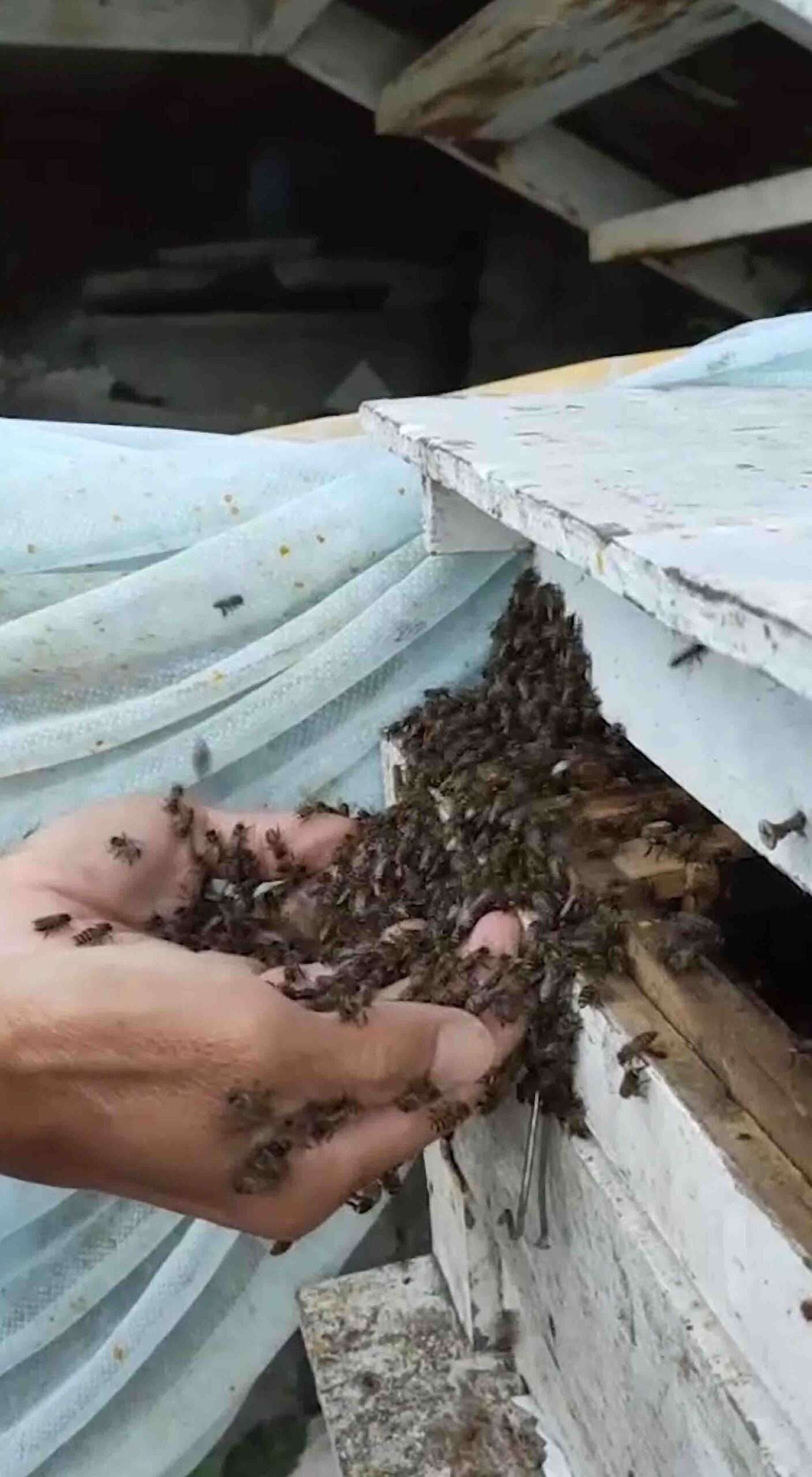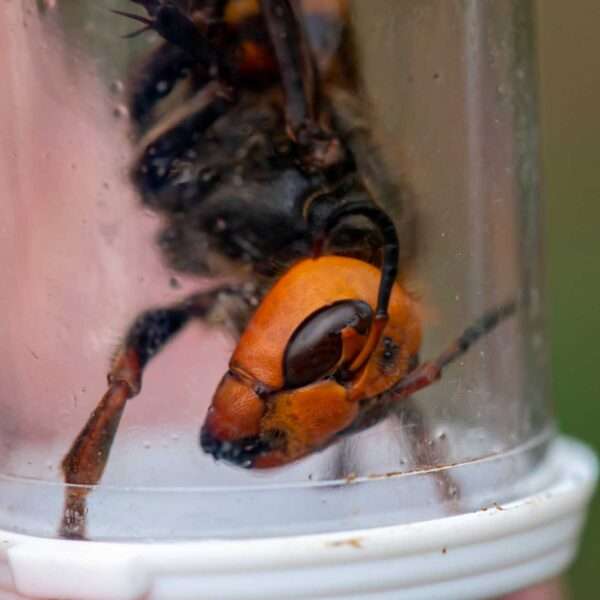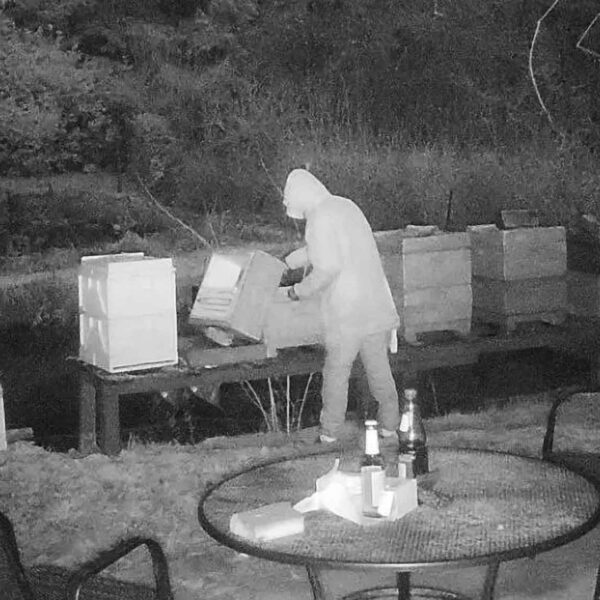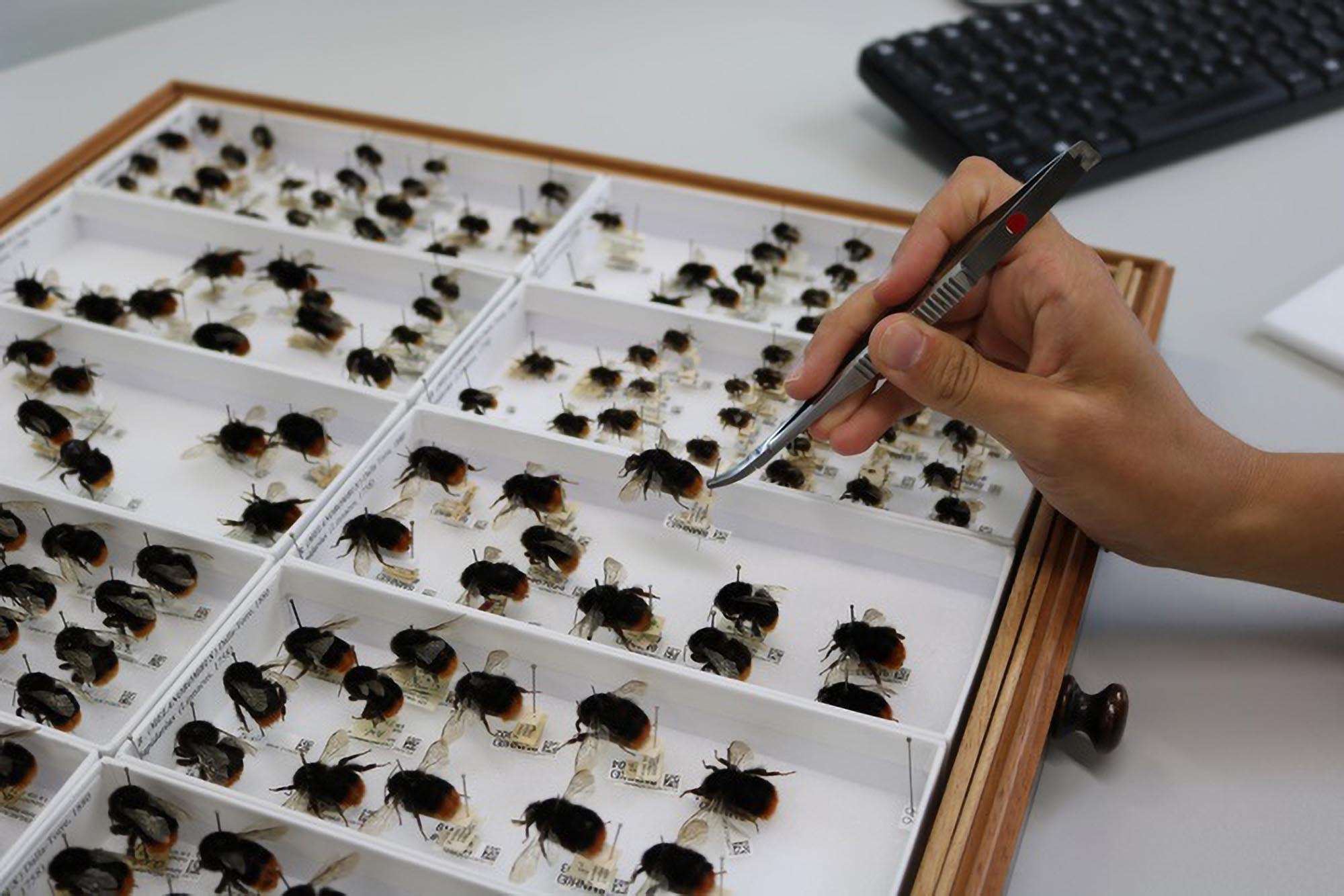An experienced apiarist has admitted feeling “helpless” as an invasive insect species keeps wiping out bees across Europe.
Ralf Janotta heads the Nordpfalz Association of Beekeepers in the town of Obermoschel, Rhineland-Palatinate, southwestern Germany.
Considering the Asian hornet’s (Vespa velutina) vigorous attacks on honeybee colonies, he told broadcaster SWR: “You do feel a bit helpless.”
Ralf said he is currently unsure about how to properly protect his hives.
He pointed out: “The insects are building swarms before launching their assaults.”
Ralf explained that this differentiated the predatory species from the European hornet (Vespa crabro). He added that the invasive insect is capable of flying backwards.
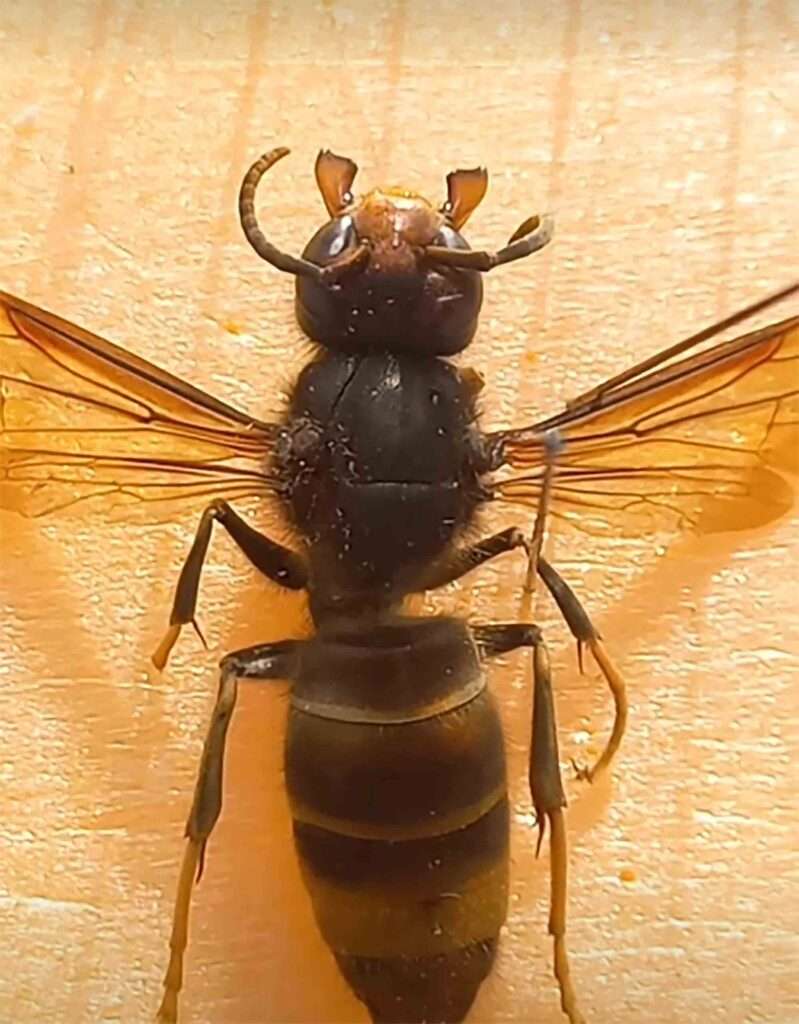
The beekeepers union head told the SWR Asian hornets would “intimidate” honeybee colonies over a long period of time. The pollinators would then abstain from leaving the hive at all.
He claimed: “You’d do the same if there was someone at your door who threatens to murder you.”
A siege by Asian hornets often also leads to a reduction of honey stocks and colony figures. The aggressive hornet species would invade the hive to kill all bees and eat their honey, he added.
Ralf explained that honeybee colonies are capable of protecting themselves against domestic hornets but stand no chance when being targeted by Asian hornets.
Ralf concluded: “There are just two options for bees – starving to death or being eaten up by an Asian hornet.”
The first report about Asian hornets in Europe dates back to 2004 when the insect emerged in southeastern France.
The insect – which is smaller than both the European hornet (Vespa crabro) and the Asian giant hornet (Vespa mandarinia) – is indigenous to Southeast Asia.
The body of an Asian hornet queen measures around 30 millimetres while worker members of a colony reach a body length of approximately 20 millimetres.
Dozens of Asian hornet nests have been removed by experts in France and southwestern Germany in the past few years.

